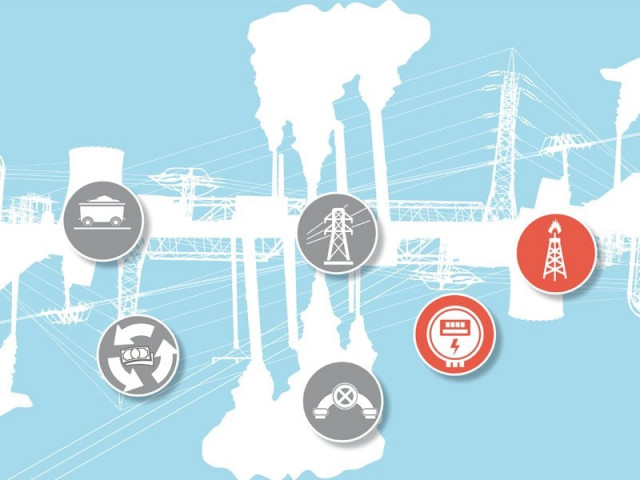The game plan: A few pointers for solving Pakistan’s energy crisis
The new government has a multitude of options to help combat the energy crisis.

There is no magic wand that the government can use to resolve the energy crisis. Decisions taken today will make an impact a couple of years later.
Pakistan is grappling with an energy crisis of epic proportions. Here are some solutions:
Short-term measures
Coal:
Ramp up coal mining and production, and convert existing thermal power plants to use coal as fuel.
Coal contributes to less than 1% of Pakistan’s generation, even though the Thar mines contain the world’s third-largest coal reserves. By comparison, coal contributes about 40% of total energy generation globally. Even ‘green’ countries like Germany are in the process of installing coal-powered plants. In generating electricity, coal clearly remains the choice of first resort.
Circular debt:
Pakistan has a circular debt in the electricity generation and distribution chain worth $5 billion, simply because the National Electric Power Regulatory Authority has proven ineffective in monitoring generators and utilities. In the West, regulatory commissions are led by energy specialists. Fixed tenures, autonomy from political interference, as well as empowerment to punish generation and distribution companies minimise chances of gaming of the system.
A strong regulator checks and balances; a weak one allows governments to run rampant. They then set tariffs as they see fit, send linemen to collect kickbacks from electricity thieves and give away electricity freebies to vote banks. Utilities go bankrupt, their slate is wiped clean, the debt re-emerges, and round and round we go.
The government must create a cadre of energy specialists who are sent to the West to study regulatory mechanisms. When they return to Pakistan, they must be allowed to set up regulatory commissions that function without fear or favour. Civil service generalists will want to grab the opportunity of overseas junkets, but the government should choose young and idealistic people with little baggage. And it should pay them handsomely: the benefits accrued will far outweigh their salaries.
Power distribution:
Decouple agricultural and consumer supply networks in rural areas from each other, otherwise households benefit unfairly from the less-expensive agricultural tariffs. Gujarat in India has bifurcated the two networks to increase electricity revenues substantively. The model should be easily replicable in Pakistan.
Import of fuel:
The Iran-Pakistan (IP) Gas Pipeline is a no-brainer. Sure, the US will exert political and economic pressure, but what if one of these days the international community reaches an accord with Iran? Won’t the policymakers in Pakistan then have egg on their face if they ditch the IP now? Other than the US’ interests, India too frets over the security situation in Balochistan. But if Pakistan’s establishment can secure the country’s nuclear arsenal, surely it can protect another critical asset.
The IP pipeline becoming the Iran-Pakistan-India-Bangladesh pipeline would be a boon for the entire region. Natural gas, which has extensive use in power generation, transportation and manufacturing, can also be imported from abroad. The Indian ambassador to the US recently urged America, which is sitting on a glut of natural gas, to allow its export. In case America agrees, Pakistan should also be ready to benefit from the decision.
Long-term measures
Shale gas:
Shale gas is a form of natural gas that is obtained from sedimentary rock through a process called hydraulic fracturing. The US is witnessing a boom in shale gas production, and Pakistan too has substantial proven shale gas deposits. The technology is field-tested and easily acquired; there is no reason to delay shale gas exploration.
Smart metering:
Install smart meters to curb electricity theft. Losses due to outright theft and unpaid bills approach nearly half of all electricity generated in Pakistan. What business can ever run like this?
At their current price of Rs10,000 apiece, smart meters can return the investment made in them in about a year. Sweden, which has very minor electricity theft as compared to Pakistan, gains a third of a percent in annual GDP from smart meters. On the other hand, the energy crisis costs Pakistan about four percent of its GDP – smart meters alone can make a major difference.
Slum dwellers steal power through illegal connections, but they are less culpable than the bourgeoisie who payoff meter readers to record lower readings or refuse to pay bills altogether. Naples, Italy’s third-largest city with a population of around a million, had a similar problem, but smart meters have been effective in curbing theft and tampering with meters and supply lines.
There is no magic wand that the government can use to resolve the energy crisis. Decisions taken today will make an impact a couple of years later. But if the government does not bite the bullet now, then it might as well be waiting for nothing.
The writer runs Sierra Consulting, an energy and policy advisory firm, and comments on clean energy and South Asia.
Published in The Express Tribune, June 10th, 2013.
Like Business on Facebook to stay informed and join in the conversation.



















COMMENTS
Comments are moderated and generally will be posted if they are on-topic and not abusive.
For more information, please see our Comments FAQ